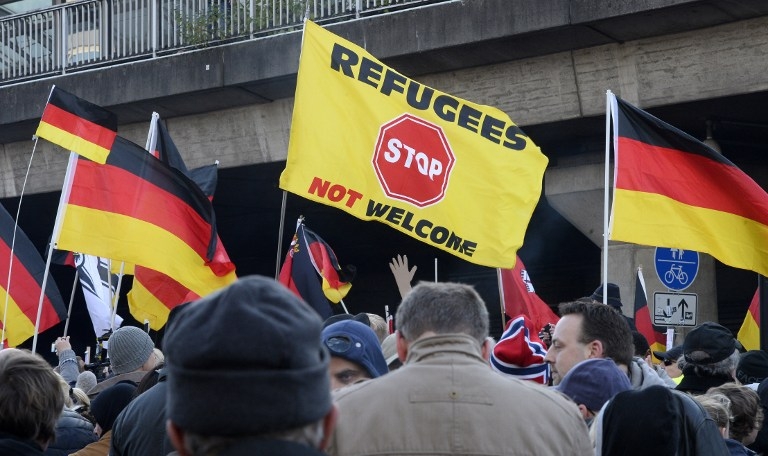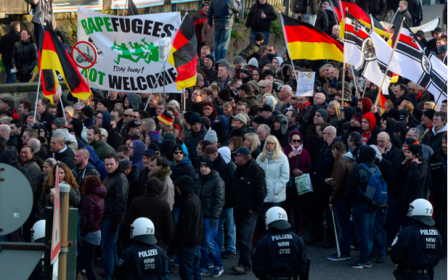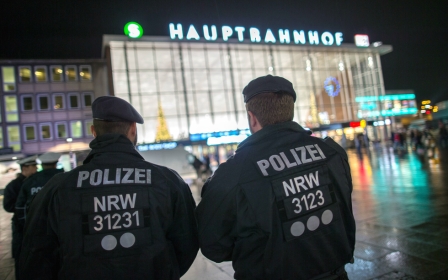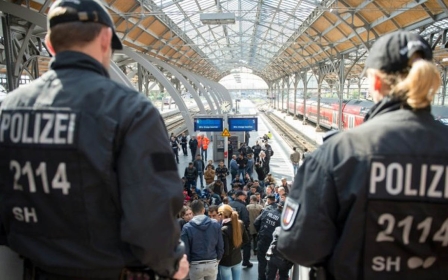Most suspects in Cologne assault cases 'of foreign origin'

Almost all of the suspects being investigated over hundreds of reported assaults in the German city of Cologne on New Year's Eve are "of foreign origin," the interior minister for the region of North Rhine-Westphalia said on Monday.
A preliminary report into the assaults - including alleged rapes and sexual offences - released by Ralf Jaeger also said that the police had made "serious mistakes" in handling the situation.
"Witness accounts and the report by the (local) police as well as findings by the federal police indicate that nearly all the people who committed these crimes were of foreign origin," Jaeger said.
More than 500 complaints of assault are being investigated by police, and the scale of the attacks, which mostly targeted women, have raised concerns in Germany about the city's open-door policy towards refugees, as well as stoking anti-migrant feelings.
There are also concerns about reprisals against minority groups, with the local Express newspaper reporting on Monday that a group of "bikers, hooligans and bouncers" were organising on Facebook to "clean up" the city.
Late on Sunday, police said a group of six Pakistani men were attacked with two of them requiring hospital treatment. A Syrian man was also assaulted in a separate incident.
Police also said they had received reports of "groups of people seeking to provoke" and sent reinforcements to the area near the city's main station and its iconic cathedral.
Police checked the identification of about 100 people and two were detained for refusing to obey police orders.
On Saturday, police used tear gas and water cannons to clear a rally of the far-right PEGIDA movement in Cologne, after protesters threw fireworks and bottles at officers they accused of failing to prevent assaults on New Year's Eve.
Separately, hundreds of people gathered outside Cologne's cathedral to protest against racism and sexism.
Witnesses initially blamed the attacks on men of "Arab and North African origin," and the interior ministry confirmed last week that nine Algerians, eight Moroccans, four Syrians and five Iranians, as well as others from Germany, the United States, Serbia and Iraq were among those under investigation.
Last week, Cologne's police chief was suspended over his handling of the attacks, amid suggestions that the police had played down the background of those alleged to have been involved in the attacks.
A press release issued by the police on the morning of 1 January on the previous evening's events had carried the headline: "Festive Atmosphere - Celebrations Largely Peaceful"
Police in the northern German city of Hamburg also said on Sunday they had recorded 133 cases of offences including sexual assaults allegedly committed against women during New Year's celebrations.
The attacks have focused scrutiny on German Chancellor Angela Merkel's "open-door" policy in response to an influx of refugees and economic migrants to Europe from countries including Syria, Iraq and Afghanistan, which saw more than one million people arrive in Germany in 2015.
Merkel has taken a tougher stance since the attacks in Cologne, suggesting that foreign nationals who break the law in Germany should face deportation.
A poll at the weekend by the broadcaster found that 57 percent of Germans feared crime would rise with the influx of asylum seekers. Thirty-seven percent said they had become more critical and negative about newcomers, while 60 percent said their opinion of foreigners had not changed.
On Monday, Pope Francis called on European countries to keep welcoming refugees, despite concerns over terrorism and security which he said threatened Europe's status as a "beacon of humanity".
"The present wave of migration seems to be undermining the foundations of that 'humanistic spirit' which Europe has always loved and defended," he said.
"Yet there should be no loss of the values and principles of humanity, respect for the dignity of every person... however much they may prove, in some moments of history, a burden difficult to bear."
New MEE newsletter: Jerusalem Dispatch
Sign up to get the latest insights and analysis on Israel-Palestine, alongside Turkey Unpacked and other MEE newsletters
Middle East Eye delivers independent and unrivalled coverage and analysis of the Middle East, North Africa and beyond. To learn more about republishing this content and the associated fees, please fill out this form. More about MEE can be found here.




